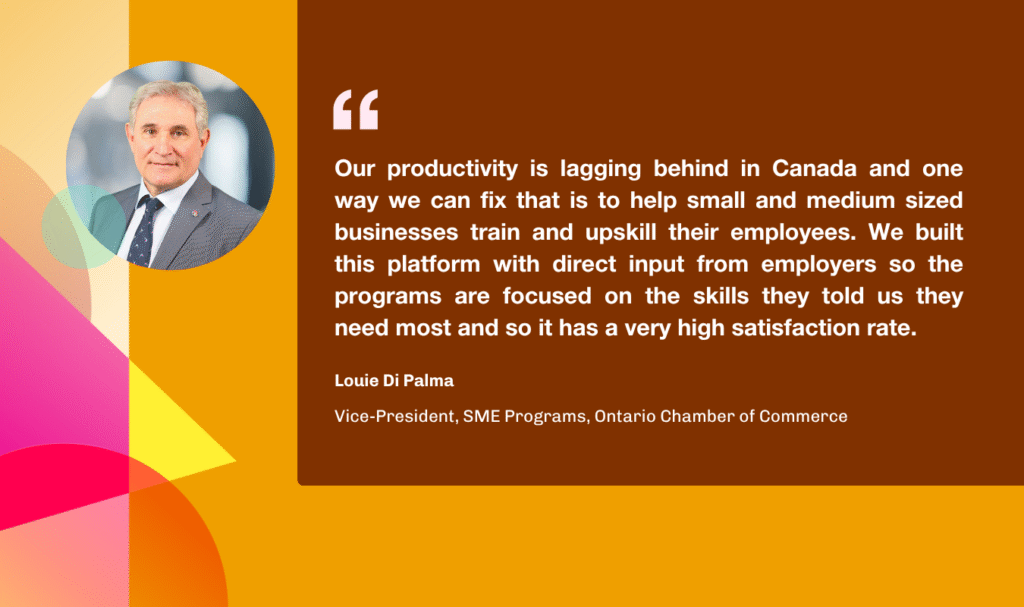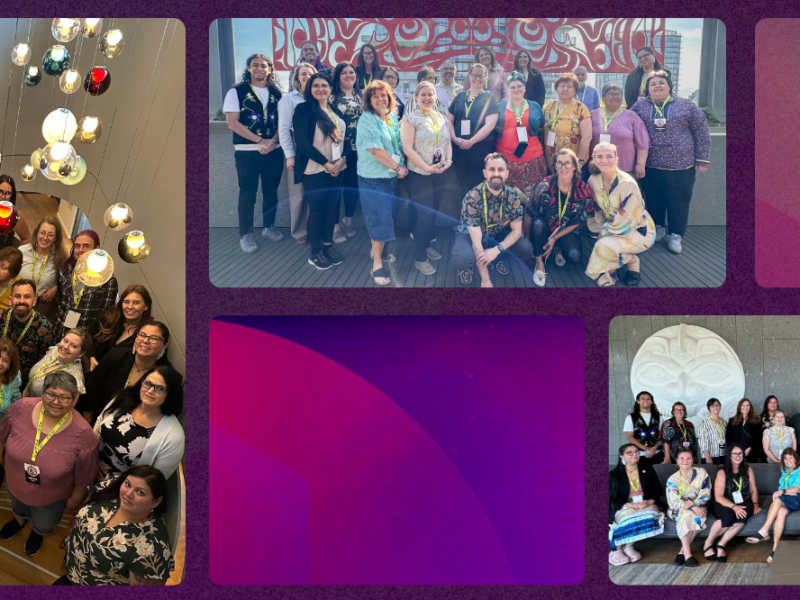Impact Story: Creating a Pan-Canadian Learning Management System for SMEs

Small and medium-sized enterprises (SMEs) are the backbone of the Canadian economy. But while they face the same skills and labour shortages experienced by large organizations, they lack the time, resources and expertise to attract top talent and develop re-skilling and upskilling programs. These challenges affect the ability of SMEs to be innovative and to grow and compete. This is especially true in this time of economic unpredictability.
Our research showed that SMEs needed help. The Diversity Institute, Magnet and Future Skills Centre partnered with the Ontario Chamber of Commerce to develop and evaluate a national learning management system, Skills Bridge, to provide SMEs with customized training resources that are effective, affordable, and able to build a diverse workforce. Building on work by the Diversity Institute and Magnet, the goal was to develop and test a platform tailored to meet the upskilling needs of small businesses with an equity, diversity and inclusion lens that would help them fill gaps in the quickly evolving labour market.

Challenge: Supporting adaptability for SMEs
SMEs represent 99.6% of employer businesses and 7.9 million workers in the private sector in Canada. Given this scale and the range of business types they represent it’s a challenge to identify common skills needed across the board.
As Louie Di Palma, Vice-President SME Programs at the Ontario Chamber of Commerce indicated, the challenge was to find a single training solution that would address the needs of workers and leaders for such a wide array of businesses.
“We listened to what they told us they needed and then we narrowed it down to a dozen or so skill sets everyone could agree on,” he said. “These were things like leadership training and HR practices, digital skills and financial courses for non-accountants, problem solving and some of the softer skills like writing and presentation skills.”
Solution: A pan-Canadian training solution
The Skills Bridge project scoped what skills SMEs need and then provided insights into the feasibility and functionality of a shared learning platform that would provide affordable and accessible training.
The platform created by our partners offered relevant custom-built course content that learners could access at their own pace and time. The courses were short and could be stacked to open up a learning pathway.
“The smaller businesses in our communities told us they prefer short, sharp learning bits,” Di Palma says. “They don’t have the time to sit down for an hour or 90 minutes. They want to take the course in five or 10 minutes at a time and then come back and start where they left off. So, we built courses around that kind of thinking.”

Lessons and future outlook:
SMEs are hungry for help in delivering skills training and they have many skills needs in common, making a single solution a possibility.
This project underscored how effective training solutions led by an intermediary can be, and demonstrated the economies of scale that can result through a pan-Canadian solution. The new learning management system proved attractive to employers. More than 65 Chambers of Commerce and 1,300 SMEs across Canada have engaged with it, and it has now been scaled across the Atlantic Provinces, Quebec and Alberta to address skills and training gaps across the country. To date, there are 94 courses available in both French and English.
The courses themselves were also well-received, with 77 per cent of learners rating the quality of the courses they took as high and 83 per cent saying they would likely recommend the course to a co-worker. More than 80 per cent of learners were able to use the platform without any barriers or challenges, suggesting it is well on its way to meeting the diversity goals of SMEs.
Di Palma says supporting adaptability for SMEs is particularly relevant today because of Canada’s lagging productivity, caused in part by geopolitical events in the U.S. and abroad.
“Obviously, if we’re going to compete, we need to take a look at training and upskilling because training is one of the components that enhances productivity,” he says. “The more that we can help the small businesses train/upskill their staff, the better positioned they will be to grow their businesses.”
The views, thoughts and opinions expressed here are the author’s own and do not necessarily reflect the viewpoint, official policy or position of the Future Skills Centre or any of its staff members or consortium partners.




